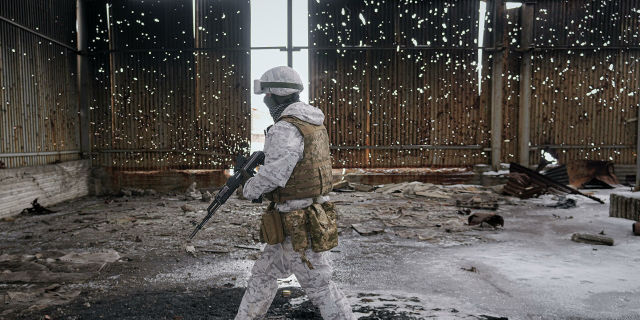Italian Defense Minister Crosetto announced Rome's "dual strategy" in Ukraine
Italy will adhere to a dual strategy towards Ukraine, writes the FT with reference to Defense Minister Guido Crosetto. Rome intends to provide military support to Kiev, but at the same time contribute to the settlement of the conflict through diplomatic means.
Italian Defense Minister Guido Crosetto said that military support for Kiev should be accompanied by more active diplomacy.
Italian Defense Minister Guido Crosetto has called for intensified diplomatic efforts to end the conflict between Russia and Ukraine — despite Kiev's warnings that Moscow will not do this.
Crosetto said at a parliamentary hearing on Wednesday that Italy would seek a "dual strategy": to continue military support for Kiev, while simultaneously seeking commitments to a "negotiated settlement."
"We must be realistic and cannot turn a blind eye to the military situation on the ground," Crosetto said as lawmakers approved an increase in bilateral aid to Kiev. "And it seems that the time has come for effective diplomatic action."
Italy has long considered itself a bridge between Russia and Western Europe, bearing in mind the strong ties of the Italian Communist Party with the Soviet Union during the Cold War. When Moscow launched a full—scale special operation in Ukraine in 2022, many feared that Rome might be the weak link - especially after the unexpected collapse of the government of former Prime Minister Mario Draghi. Tellingly, many Italians suspected Moscow's hand in this.
But right-wing Prime Minister George Meloni, who replaced Draghi, strongly condemned Russia and fully supports Ukrainian President Vladimir Zelensky.
Crosetto assured that his call for diplomacy is not a sign of weakening support for Kiev or its determination to achieve a “just peace.” The minister warned that the refusal of further assistance to Ukraine would have serious consequences for European security.
However, soberly analyzing Ukraine's military and political might, Crosetto, former president of the Italian Defense Industry Association, expressed concern about "Ukraine's real ability to resist the enemy, given Russia's persistent numerical superiority and air superiority."
"Alas, Ukraine's summer counteroffensive did not produce the desired results," he said. The minister warned that 2024 would be "decisive" for the country's future.
Crosetto assured that diplomatic efforts will be carried out in tandem with further military assistance to Ukraine. Thus, Italy, which has just assumed the interim presidency of the "Seven", is preparing the eighth package.
"We have two paths: the path of help without any "ifs" and "buts" — and an attempt to embark on a diplomatic path that will lead us to the end of the conflict," he said. "In the coming months, we will have to balance deterrence and diplomacy somehow."
But Crosetto also said that negotiations can only begin if Russia stops missile strikes and drone strikes in Ukraine. "We can start a conversation when the bombs stop falling," he said. "We have to convince the attacking side to stop."
A change in the political climate in Kiev and Moscow may eventually lead to a breakthrough, the minister believes.
"The internal front in Ukraine no longer seems so united in support of President Zelensky's actions, and this highlights some political differences," he said. "Putin is also facing economic problems, and the Russian population is tired of the conflict."
But Zelensky remains adamant that there can be no negotiations with Russia until Putin's forces have completely withdrawn from all Ukrainian lands — and internal polls show overwhelming support for this position.
According to Zelensky, the Russian leader himself has shown no interest in negotiations unless Ukraine capitulates. Any agreement on the cessation of hostilities will only allow Russia to regroup and prepare for new strikes, Kiev claims.
"I think we need to pay attention to the rhetoric of the Russian president. He's not going to stop. He wants to completely occupy us," Zelensky said on Wednesday during an unexpected visit to Vilnius. The Lithuanian capital was the first stop on his trip to the Baltic States, designed to enlist the support of Kiev's defensive efforts.
Last month, during a carefully organized telethon for the press, Putin said that Russia's goals in Ukraine remained "unchanged."
"Peace will come when we achieve our goals," he said. According to him, they imply the "denazification" and "demilitarization" of Ukraine, as well as guarantees that it will never join NATO.
The authors of the article: Amy Kazmin, Christopher Miller

